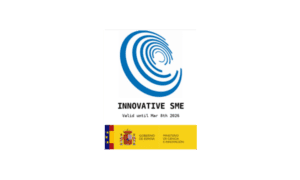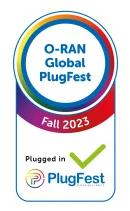FutureNet World'22 – Challenging and possible
Written by Alejandro Medina, CTO
Published by futurenetworld.net on 29th May 2022
The world is changing in so many ways, and so are the telecom industry landscape and the discussion platforms too. Attending for the first time FutureNet World ’22 last May gave me a fresh insight into the current challenges faced by the industry players. I found particularly refreshing the openness and honesty of both operators and suppliers in sharing their experiences and thoughts, as they are all in the quest to find meaningful solutions to common challenges. The discussions also reassured me that the solutions sought are not in the hands of just a few large players, but small and upcoming specialist suppliers have a key role too in helping network operators to move forward along their transformation journey to secure their survival and future.
The key challenges that the telecom industry is facing are multiple and linked to each other:
- Hyperscalers – Network operators are fully aware that they risk of becoming a commodity as market conditions are increasingly tougher, more players target the same customer base and red tape requirements increase. Hyperscalers have aggressively entered the market and win customers over with their fresh approach based on flexible innovative technology rather than constrained legacy one, personalised answer to customer’s requirements and services offered on the public cloud. Operators need to effectively up their game and speed up their digital journey if they want to win against such competition. They must provide added value services and create new revenue streams, find ways to listen more to the customers and embrace fully DevOps as a much more agile methodology. They can achieve all this if they fast-track automation towards zero-touch in all its forms, embrace data analytics and leverage all possible service delivery methods beyond public cloud (fixed, mobile, hybrid and private cloud). They should also prepare for the new opportunities that OpenRAN seems to promise. Although this new delivery method still has a way to go, operators, suppliers and relevant associations can work together to prepare the right environment and standard for it to become a lucrative reality soon.
- Automation – Although it means different things to different people, automation has become a must for all operators. It was clear during the event that, indeed, all operators have initiated their own journey towards automation, but each follows its own path based on the unique reality faced. Automation is extremely important not just as means to reduce manual intervention, lower costs and improve customer experience’s quality. Operators believe it is also vital in order to prepare their network and operations – whether in the BSS or OSS area – for the disaggregation of software and hardware that is clearly coming. It was noted, though, that the expertise and knowledge required to progress the journey towards automation is not always readily available within the operator’s workforce. This is why specialised third parties – small and large, well established and newcomers – can play a great role in supporting operators to achieve network and operations’ automation
- Data – Improved customer experience and automation cannot be achieved without a real understanding of the value of data and their correct use. The speakers at FutureNet World clearly showed, in theory and with real use cases, that a focus on data collection, integration, correlation and, above all, analysis and interpretation, can heavily inform a company’s decision making process and guide its automation efforts, often overcoming blocks created by operational silos and departments. In our daily dealings with operators, though, we have noticed that action lags behind intent more often than not. Operators can find in third party specialists the experience, knowledge, guidance and dedicated manpower to make their data work harder for them, and to achieve this at a much faster pace.
The event’s discussions made it clear that no operator can succeed alone in facing and overcoming the telecom industry’s challenges, as there are plenty of them: legacy technology, limited automation, software and hardware disaggregation, hyperscalers’ competition, increased importance of customers’ experience, as well as increasingly limited highly specialised technology workforce. The only way forward is for operators and suppliers to join forces, forge strong partnerships and create an ecosystem where everybody, and ultimately, the customers, will win. Small specialist suppliers like us will be able to play their part too in the advancement of the industry by helping the operators to fill their specific gaps and overcome their limitations flexibly, with clear timeframes and specialist in-depth knowledge. It is indeed time to work together.



